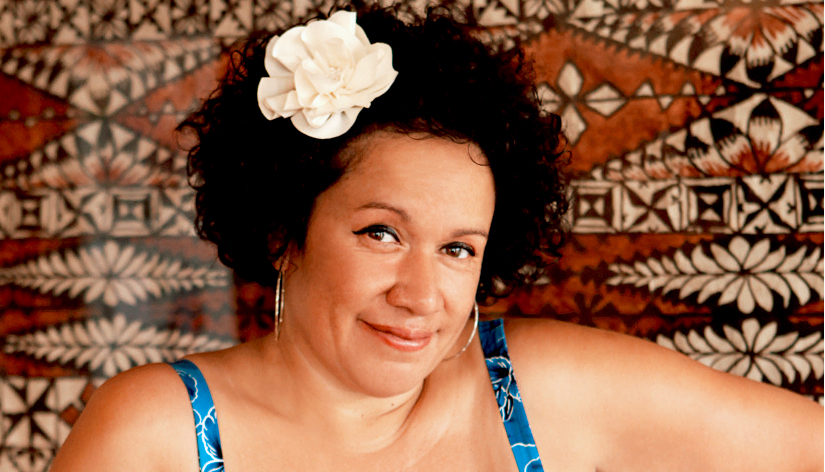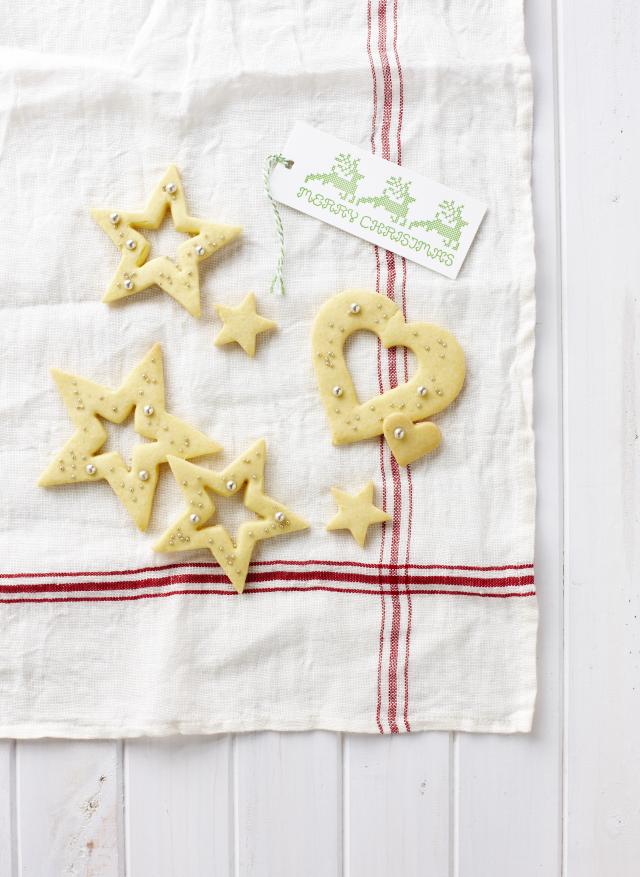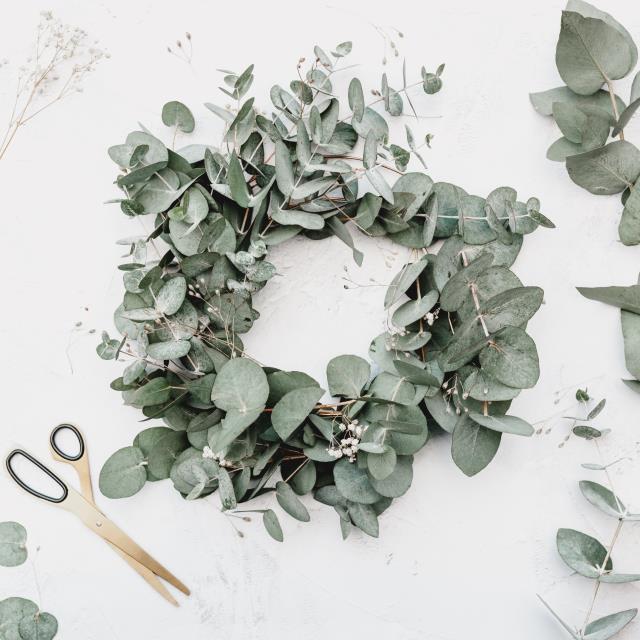She grew up singing. She’s made a career out of singing with her sister, Linda; her husband is a drummer; she believes her daughter will be a musician; the books she reads are mainly rock autobiographies and she says she has few passions outside music. But sometimes – just occasionally – there can be too much singing.
Last year Vika Bull visited Tonga (where her mother was born) for a family wedding and, true to Tongan culture, there was a lot of singing. “They sing all the time,” she says.
“Mum was one of the first Tongans to arrive in Melbourne, in 1956. She came out to study nursing. A few more Tongans came out, they formed a little community, started a church. They brought their singing, brought their hymns and we grew up listening to that, listening to the choir.
“Linda, my daughter, and mum and dad go (to Tonga) all the time. It was my first visit in 17 years. I’d forgotten that singing really is a part of the culture. They were singing all day. They’d be doing choir practice somewhere. It was amazing. My husband couldn’t get over it. They sing right through the day, until midnight. I got a little bit sick of it, because it never stops.”
Still, it was good to be back, she says.
Did she feel as strong a connection to Tonga as she had before? “Yeah. I was a little bit sad. It’s poor.”
Vika Bull is one of the staples of Australian music. For nearly 30 years – mostly with Linda – she has been ripping stages apart with that startlingly huge voice, creating extraordinary harmonies with Linda’s sweeter, more mellow tones.
She has worked extensively with Joe Camilleri’s Black Sorrows and for many years with Paul Kelly. She has travelled the world singing back-up for Joe Cocker, Sting and Bob Dylan. To have had a career in music for all this time is a great achievement, and she knows it. “That’s how I look at it. I just think I’m lucky to have been able to support myself in a job that I really love.”
The Bulls grew up in a close family. Vika and Linda’s mother taught them to sing. As children the sisters would be taken to the Tongan church, where Vika was captivated by the hymns. “They were singing in Tongan so I didn’t understand it but I loved the sound of it. Church was boring. We were made to sit in church and listen.”
Singing with Linda was just instinctive. “It seemed natural, it made sense that (Linda and I) should sing together, a bit of a team.”
When Bull started her own family – her daughter, Mafi-Iolani, was born 15 years ago – she very quickly understood the richness of an extended family. “I had Mafi when I was 31 and I was incredibly selfish, just did whatever I wanted, being a singer and travelling and partying all the time and having a great time,” she says.
“When I told mum I was going to have a baby, she was like, ‘Oh no, no, no, no, not you’. I got really upset. Then I had Mafi – who mum delivered – and she was right, I had no idea what motherhood was all about.
“It was terrible. We all lived with mum and it took her about a year to show me how to be a good mum. I didn’t take to it naturally. I was sort of like, ‘This is weird’. As soon as the baby was born I handed it straight to mum and she handed it straight back and goes, ‘It’s your baby’ and I’m, ‘OK, here we go’.
“I’m so happy I had my mother to show me, blessed to have her. She sat up with her every night – I sat up with her, I didn’t sort of fall asleep or was a lazy cow, I was helping my mother as well.
“I’m really glad I had her [help]. One time she went away for the weekend and I was on the couch in tears. I reckon I would have suffered postnatal depression had she not been there. She came and took the baby and said, ‘OK, OK, you go out and have a rest and I’ll take care of the baby’, and I came back and I felt much better.
“Living in an extended family was great. There would probably be a lot less postnatal depression if there was a lot more help.”
How was she after the first year? “Cool bananas! Loved it. Best thing I ever did.”
Bull and her family still live with her parents and Mafi feels strong connections to her Tongan culture. “She loves it,” Bull says. “Mafi is very fair-skinned with blue eyes, doesn’t look Tongan at all. But she feels more Tongan than she does Australian. She was raised by her grandmother.”
Cultures that don’t embrace the extended family seem to be missing out on this connection. I ask Bull whether she thinks her family’s way is the way to live. “Of course. Mum and dad are nearly 80 and they’re not lonely, they’ve got their grandchildren around them. We’re always there, we cook them dinner, we always eat together.
“Our kids love them, they love spending time with them. We can work. They can pick them up from school. They’re always there when the kids come home from school and [they] feed them.”
Being a musician isn’t always great for family life and having this in-built family help has been invaluable. “It’s been great for the career. Because we do go away a lot. We put our kids in schools close to their home so they can walk. I had to work … I went back on the road six weeks after I had Mafi. I’ve got a husband that works as well.”
Mafi, 15, will by the looks of it, follow her parents’ path. “I’d say she’s probably going to be a musician. Her father’s a drummer. It’s in the blood. We encourage it.”
Bull’s next project is the starring role in At Last – The Etta James Story. The show will feature Bull telling the story of the American soul singer with spoken word and 24 of James’ songs. It will open just over a year after Etta James’ death in January 2012.
Bull is excited to be telling James’ story. She first heard about the singer when she was trying out for a late-’50s band called Sophisticated Boom Boom. “During rehearsals the bass player said I should check out this singer, Etta James,” she says. “I was fresh out of school and listening to EON-FM top-40 stuff. He gave me some of her records, I took them home and just went, ‘OK, she’s the one’. I really liked the way she sang and the emotion in her voice … I liked her power. And I liked the way she could tell a story.”
James had a tough life. “Her mother was pretty wild, in and out of jail, would appear then disappear, hanging out with bad men,” Bull says. “Etta was fostered out, went on the road when she was 14, and that’s when she started. She had to have chaperones and her mother would appear and go on the road with her, but she was a bit of a fruit loop. Then it was going on the road and getting hooked on drugs and alcohol, going downhill, then coming back. The drugs didn’t destroy her … she was a survivor.
“It’s an interesting story, just amazing. She had children and they had a bit of a rough time with a mother with drug-addiction problems.”
Bull’s own experience as a singer is huge. She reflects on working with Sting, Bob Dylan, Joe Cocker and Paul Kelly. “They’ve all been fantastic. Joe was great, he was a great teacher, he taught us about touring and singing seven nights a week.”
She remembers looking out at
the large crowds at Billy Joel and Sting shows. “Doing those stadiums was pretty intimidating,” she says. “You’re there thinking, ‘Why am I here?’ Everyone’s there to see the main act, but it’s good experience being on a big stage.”
Kelly was a strong mentor and encourager. “Paul Kelly always encouraged me and Linda to write [songs] and we don’t do it that much … Linda and I really like singing with Paul, we like the blend. His voice cuts through. Linda’s is mellow and smoother, mine can hurt the ears a little bit, Paul has a very powerful voice. I think the three together, when we harmonise [it works].”
And Kelly, she says, writes great lyrics. “They are really good to sing. When I go back and sing songs with Linda that we wrote when we were young, I cringe. I’m thinking, ‘This is crap’. What were we thinking? We were 18. “[Songwriting] is like pulling teeth. I hate it.”
She wishes she was better at writing songs. “It makes sense. It’s something I probably should have worked on a lot more when I was younger. I’d have to sit down and treat it like a nine-to-five job, and I’m too restless to do that. I could be out swimming or cooking or hanging out with mum and dad or my sister. I was too lazy. Linda loves it but I don’t.”
Is she tempted to look back on crossroad moments in her career? “I do. I think there are opportunities that have been missed. When you’re young, you think, ‘I’m just going to do what I want and everyone else can get stuffed, this is what I want to do’. Sometimes I think we’ve made wrong decisions. Sometimes we’ve had the help there and not really listened to people that were more experienced than us, in the business.”
Why not? “Didn’t want to do what they wanted us to do. We wanted to sing what we wanted to sing. It could have been a stepping stone for other things if we’d taken that advice. When we first signed to a record company they wanted us to make a soul album. We didn’t want to sing soul music, we wanted to sing country music. Maybe we should have done the soul thing.”
There might be regrets but she has been employed for nearly 30 years in the music business. Not a bad effort. “That’s right. Longevity in music – I think that’s our success, that people still want us to sing for them, people still come to our gigs. We’ve been lucky.”
She talks about avid fans who come repeatedly to see her sister and her. “They’re incredibly loyal. Sometimes I’m a bit embarrassed. It’s because I’ve never done that myself with any band. I just can’t get my head around how they can come and see us sing 10 or more times. I’m like, well, aren’t you sick of us yet? I really enjoy talking to them and I’m really happy that they support us.”
She doesn’t really have passions apart from music. She loves reading autobiographies of rock stars, Etta James, Neil Young (Waging Heavy Peace) and she left Anthony Kiedis’ searing, drug-soaked Scar Tissue on the table, which duly shocked her father when he picked it up.
Bull is now gearing up for the James show, and is committed to honouring the singer’s life.
“I’ve got to make sure I do a good job and sing properly every night and tell her story with respect, because I really love Etta James.”







